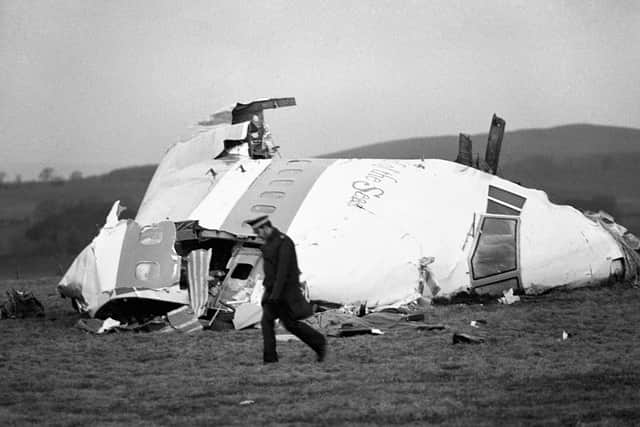Is counselling always the right response for victims of crime? - Dr Alan Billings
One of the areas of growing demand is counselling. While funding is an issue – perhaps always will be an issue – a shortage of counsellors seems to compound matters. And there are counsellors and counsellors. It is often the more experienced and specialised counselling that is most needed.
It doesn’t take too much imagination to realise that a child who has suffered sexual abuse from a close family member is going to need a very different approach from that of an adult who has been assaulted by a stranger. But is counselling always the right response?
Advertisement
Hide AdAdvertisement
Hide AdMy attention was caught recently by some research that seems to suggest that counsellors can be brought in too quickly. Dutch social scientists, who studied 236 survivors of different kinds of traumatic events, found that where emotional debriefing is given too quickly, victims were more likely to go on and show signs of post-traumatic stress disorder, needing even more help.


They compared the victims who received immediate counselling with those who received none and were left to cope for themselves. They found that the former had poorer mental and emotional health outcomes than the latter. This was attributed to what they called ‘hyper arousal’ – the counselling raised awareness of the traumatic event in ways that did not happen with those who had no help.
There may also be cultural factors in play when it comes to counselling. For example, when I taught at Lancaster university in the 1990s, I met a counsellor who was studying for an MA. She had been involved in helping the families of those who were bereaved when PAN AM Flight 103, going from London to New York, was blown apart by a terrorist bomb and fell on the Scottish town of Lockerbie in 1988. All the passengers and crew were killed, as well as people on the ground.
Grieving relatives came from over 21 countries, with many different religious and cultural backgrounds, to see the place where their loved ones had died. She was one of the counsellors who sought to help them. When she and her colleagues met a family of Buddhists, they were quite disconcerted. Her training had led her to believe that people impacted by trauma needed to express their emotions; the Buddhists were stoical and said little, turning inward. She was forced to rethink her practice. It’s possible, in the light of the Dutch research, that the offer of counselling was, in any case, too soon.
Advertisement
Hide AdAdvertisement
Hide AdI am also old enough to recall the Aberfan disaster of 1966 when a spoil heap fell on the village and buried 28 adults and 116 children. The people of Aberfan refused counselling, closed ranks and supported one another.
Perhaps we live now in a less cohesive society which no longer has as many of these religious or cultural resources to draw upon.
Perhaps we are less resilient as a result and so are in greater need of the help of professional counsellors when traumatic events happen.
At any rate, the demand for help for victims and survivors of crime is considerable and I commission what I can to help.
A shortened version of the Police and Crime Commissioner for South Yorkshire’s latest blog post.